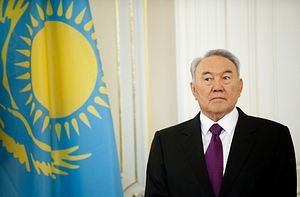In 2015, four Central Asian states –Tajikistan, Uzbekistan, Kazakhstan, and Kyrgyzstan — staged elections. Of the two presidential and two parliamentary elections, only Kyrgyzstan’s October parliamentary elections garnered international praise. Elections in Tajikistan, Uzbekistan, and Kazakhstan drew wide criticism from the West but praise from self-serving regional groupings. Rather than demonstrating further democratic progress — again, with Kyrgyzstan as an exception — the region’s elections largely represent the further concentration of power in the hands of a few. As the region’s states look to celebrate 25 years of independence in 2016, the international community — the West in particular — needs to ask itself what a quarter-century of democratization efforts have bought. That larger conversation should begin with 2015’s elections, particularly the democratic failings in Tajikistan, Uzbekistan, and Kazakhstan.
Tajikistan’s March 1 parliamentary election touched off a definitively bad year for oppositionists. As has been much discussed here in Crossroads Asia, the Islamic Renaissance Party (IRPT) failed to gain seats in the election for the first time since its re-legalization following the Civil War. The IRPT had only ever held two seats — out of 63. The slide from sitting in parliament to jail cells took only a few months. By September, the IRPT had been banned and labeled an extremist organization, with its leaders arrested or in exile. The OSCE noted in its final election monitoring report,“Despite the existence of some political choice, the election campaign took place in a controlled environment, amid arrests of opposition politicians, candidates, and election officials.” Tajikistan’s parliament still has “opposition” parties but none voice much of an alternative view of how to run the state — and viewing the example made of the IRPT it’s not hard to imagine why other opposition parties remain meek.
The results of Uzbekistan’s March 29 presidential election was called a “predicted landslide.” “Winning” over 90 percent of the votes casts (and turnout, according to the government, was over 91 percent), Islam Karimov scored himself another term in office regardless of constitutional term limits. The OSCE’s report — long, comprehensive and filled with the expected diplo-analytical phrases — seemed to drip incredulity in its recommendations, stating that first, “The Constitution should be adhered to.” The report notes that Uzbek officials explained that the word “term” doesn’t mean what the OSCE thought it meant: “… the notion of ‘term’ means the exact number of years and, as the previous presidential term was seven years while the next will be five years, these cannot be considered as two consecutive terms.” Karimov, a septuagenarian expert at constitutional rejiggering, seems to have no plans for succession.
Despite deep OSCE criticisms, monitors from the Commonwealth of Independent States and the Shanghai Cooperation Organization praised Karimov’s re-election. Chairman of the CIS Executive Committee Sergei Lebedev even went so far as to say their findings — that the elections were conducted in accordance with the Constitution and provided Uzbeks with free choice — largely coincided with OSCE. He must have been reading a different report.
In similar fashion, Kazakhstan’s President Nursultan Nazarbayev called for early presidential elections and then won in a landslide — a whooping 97 percent of votes with a turnout of 95 percent. Nazarbayev portrayed the victory as a confirmation of his mandate to lead. While most Western news outlets treated the Kazakh election in the same vein as the Uzbek election — pointing out the lack of opposition and absurdity of the victory margins — there is a particularly insidious vein of discourse in the West regarding Astana, which overlooks its failings. All the great PR oil money can buy has gone into smoothing Kazakhstan’s rough authoritarian edges for an international audience.
In different ways the leaders of Tajikistan, Uzbekistan, and Kazakhstan have used “elections” to achieve the same fundamental goal — the perpetuation of their own individual grips on power.

































